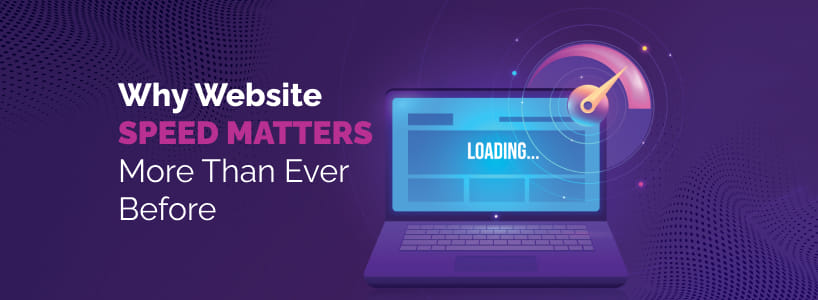Public online audiences dislike enduring extended loading times. People click away when pages load slowly. Website Speed Optimization helps keep visitors happy and coming back. Let's look at why fast websites win and how to make yours faster.
The Hidden Cost of Slow Websites
Slow websites cost money. Your site's loading speed determines exactly how many visitors you will lose during a single second. Availability data shows that 40% of website visitors exit whenever a site takes longer than three seconds for complete loading.. This quick exit means fewer sales and less engagement. Search engines also rank faster websites higher in results. Your slow site might be hiding on page two or three.
How Speed Affects User Experience
Think about your own online habits. Do you wait for slow sites? Most people don't. Fast sites keep users focused on your content. The speed at which pages load determines how long visitors stay on each page as well as how many additional pages they will view. The site visitors are less likely to leave in the future. Website Speed Optimization directly affects how people see your brand. Fast sites feel trustworthy and professional.
Four Key Ways to Boost Your Website Speed
Making your site faster isn't just one task. Here are four areas to work on:
- Image Compression - Photos and graphics often cause slowdowns. Many websites use pictures that are much bigger than needed. Compress your images before uploading them. This simple step can cut load times in half. Tools like TinyPNG or ShortPixel make this job easy.
- Reduce Server Response Time - Your hosting choice matters more than you might think. Cheap hosting often means sharing resources with many other sites. This slows down how quickly your server responds. Consider upgrading to better hosting if your site feels sluggish. A good server should respond in under 200 milliseconds.
- Use Browser Caching - Why load the same files every time someone visits? Browser caching stores parts of your site on users' computers. When they return, these files load from their device instead of your server. This makes repeat visits much faster. Setting up caching takes just a few minutes but saves hours of loading time.
- Trim Down Code - Extra code slows down your site like extra weight slows down a runner. Remove unused themes, plugins, and scripts. Combine CSS and JavaScript files when possible. Clean code loads faster and runs more smoothly. This step often needs technical help but pays off greatly.
The Mobile Speed Factor
Most web traffic now comes from phones. Mobile users expect sites to load just as fast as on computers. Yet many sites still load slowly on mobile devices. Website Speed Optimization must focus on mobile experience too. Google now uses mobile speed as a ranking factor. A slow mobile site hurts your search position.
Measuring Your Success
What indicators will show that your actions succeed? You should utilize Google PageSpeed Insights or GTmetrix for these checks. They give your site a speed score and suggest fixes. Track your score over time to see progress. Even small improvements can make big differences in user behavior.
Speed isn't just a tech issue it's a business one. In our rushed world, fast websites win more customers. Start with small changes and watch your site performance grow. Your visitors will thank you with their time and attention.

